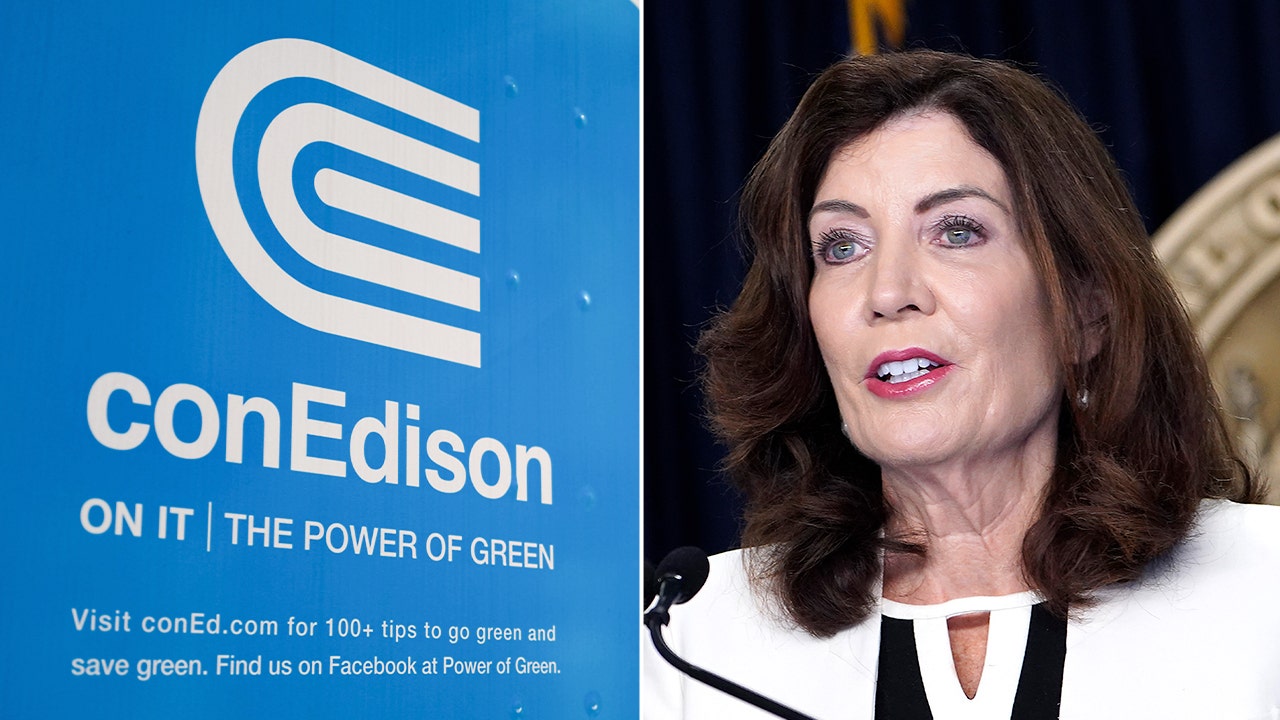Politics
Kathy Hochul does apparent about-face on natural gas as NYC utility signals major rate hikes

New York Governor Kathy Hochul’s Controversial Pipeline Expansion Decision
In a move that has sparked widespread debate, New York Governor Kathy Hochul has approved permits to expand the capacity of the Iroquois Pipeline, a major bi-state energy infrastructure project. This decision comes despite her administration’s strong push for green energy policies over the years, including bans on natural gas use in new construction and a commitment to net-zero emissions by 2040. The Iroquois Pipeline, which spans 414 miles from St. Lawrence County near the Canadian border to key locations such as Long Island and the Bronx, plays a critical role in delivering energy to millions of New Yorkers. However, the state Department of Environmental Conservation has acknowledged that the expansion is "inconsistent" with New York’s greenhouse gas emissions limits, raising questions about the balance between energy needs and environmental goals.
Energy Costs and the Pressure on ConEd
The pipeline expansion decision coincides with growing concerns over rising energy costs for New Yorkers. Consolidated Edison (ConEd), the primary utility provider for New York City and Long Island, has proposed significant rate hikes, including an 11.5% increase in electric rates and a 13% increase in gas rates. These increases could cost the average household approximately $500 per year. Governor Hochul has criticized these hikes, arguing that they undermine her efforts to provide "inflation refunds" of $500 to middle- and low-income families. She has also called for an audit of ConEd executives’ salaries, signaling her administration’s frustration with the rising costs. State Republicans, however, have criticized Hochul’s approach, arguing that her focus on green energy policies has created an unreliable and expensive energy system.
New York’s Climate Policies and Energy Challenges
New York State has been a leader in promoting clean energy and reducing fossil fuel reliance. In 2019, under former Governor Andrew Cuomo, the state passed the Climate Leadership and Community Protection Act, which set ambitious goals to achieve net-zero greenhouse gas emissions by 2040. The state has also taken steps to phase out nuclear power, including the shutdown of the Indian Point Energy Center in 2021, despite concerns about energy reliability. Additionally, Hochul’s administration has banned the use of natural gas in new construction and introduced a "cap and invest" program to force oil companies to invest in green energy. These policies have been praised by environmental advocates but have also drawn criticism for their potential impact on energy availability and affordability.
The Tension Between Green Energy and Reliable Energy Supply
The debate over the Iroquois Pipeline expansion highlights the tension between New York’s climate goals and the need for reliable energy. During a recent Arctic storm that brought temperatures near zero degrees Fahrenheit, utilities such as ConEd and National Grid struggled to meet energy demand. This has raised concerns about the state’s ability to ensure a stable energy supply, particularly as it transitions away from fossil fuels. Republicans and other critics argue that Hochul’s green energy policies are unrealistic and prioritize environmental ideals over the practical needs of consumers. They point to the shutdown of Indian Point and the ban on fracking as examples of policies that have left the state vulnerable to energy shortages.
The Economic and Political Fallout
The pipeline expansion and energy cost issues have also sparked political criticism. Republicans have accused Hochul of using the "inflation refunds" as a political tool to boost her popularity ahead of the 2024 election. They argue that the payments are insufficient to offset the rising costs of energy and other necessities. Meanwhile, communities in the Southern Tier of New York, which has significant natural gas reserves, have expressed frustration over the state’s ban on fracking. While neighboring Pennsylvania has continued to extract natural gas from the same Marcellus Shale formation, New York’s ban has left many communities in the Southern Tier feeling economically disadvantaged.
The Future of Energy Policy in New York
The controversy over the Iroquois Pipeline expansion and rising energy costs reflects broader challenges for New York’s energy policy. The state is grappling with how to balance its ambitious climate goals with the need for reliable and affordable energy. While Hochul’s administration has taken steps to expand renewable energy sources and reduce fossil fuel dependence, the transition has been uneven. The recent pipeline decision suggests that, for now, natural gas will continue to play a significant role in meeting the state’s energy needs, even as it seeks to move away from fossil fuels in the long term. Whether New York can achieve its climate goals without compromising energy reliability and affordability remains to be seen. As the state moves forward, it will need to find a way to reconcile its green energy aspirations with the practical realities of energy demand.
-

 Tech1 day ago
Tech1 day agoCanon’s New Camera Is in a Category Once Thought Practically Dead
-

 Tech7 days ago
Tech7 days ago‘The White Lotus’ Season 3: Release Schedule and How to Watch
-

 Entertainment5 days ago
Entertainment5 days agoKhloe Kardashian Says Mom Kris Jenner ‘Gets Mad at Me’ for Wearing ‘Baggy Sweats’ Out of the House
-

 Money6 days ago
Money6 days agoCal Newport’s Productivity Hack That Can Also Help You Escape Financial Burnout
-

 Tech6 days ago
Tech6 days agoBest Internet Providers in Cincinnati, Ohio
-

 Sports2 days ago
Sports2 days agoChargers to play 2025 regular season opener in Brazil
-

 Tech5 days ago
Tech5 days agoBest AirPods Max Accessories for 2025
-

 World6 days ago
World6 days agoHow to Watch USA vs. Cuba: Live Stream 2025 Concacaf U-17 Men’s Qualifiers, TV Channel
















